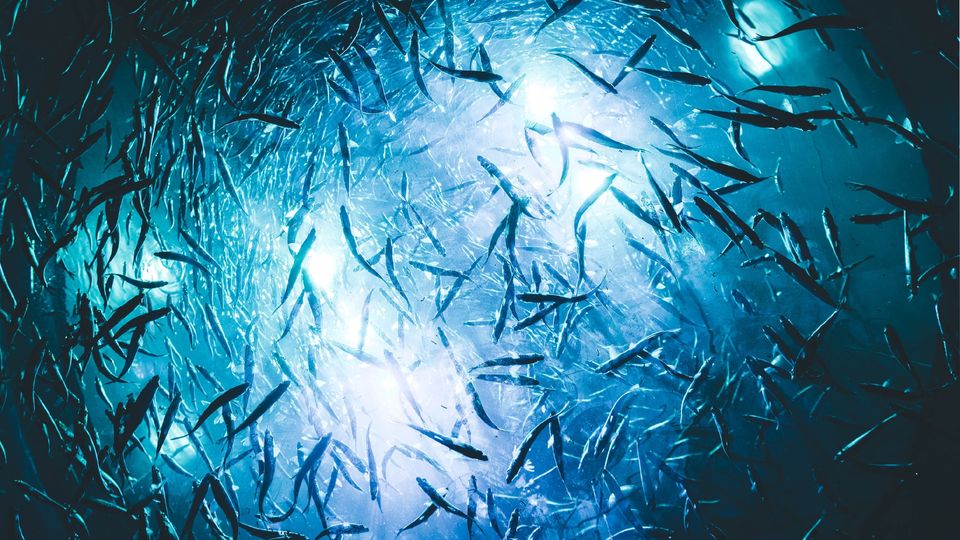Register for free to listen to this article
Thank you. Listen to this article using the player above. ✖
Want to listen to this article for FREE?
Complete the form below to unlock access to ALL audio articles.
The first ecosystem model that covers the complete food web of the western Baltic Sea predicts how marine life in the region would react to different fisheries scenarios and additional human-induced stressors. The model simulations reveal that ecosystem-based fisheries management would restore stocks of commercially relevant fish species and the endangered harbour porpoise population. Marine life would become more resilient, and options for additional carbon sequestration would open up, a team of marine scientists led by GEOMAR Helmholtz Centre for Ocean Research Kiel (Germany) explains in a study now published in Frontiers in Marine Science.
Decades of overfishing, together with nutrient pollution, rapid increase in hypoxia, ocean warming and acidification have put fish and harbour porpoise (Phocoena phocoena) in the western Baltic Sea at risk of collapse. But the commercially relevant stocks of cod (Gadus morhua), herring (Clupea harengus) and sprat (Sprattus sprattus) can be restored and prospects for marine mammals be improved, according to a team of marine scientists from GEOMAR Helmholtz Centre for Ocean Research Kiel (Germany), the German Federal Agency for Nature Conservation (Bundesamt für Naturschutz, BfN, Germany) and the Institute of Biosciences and Bioresources at the National Research Council (CNR) of Italy.
Using model simulations, the researchers tested five scenarios from no fishing to ecosystem-based fisheries management. This approach accounts for the roles of species within their ecosystem and adjusts catches accordingly to keep fish stocks in a healthy, productive and resilient condition. A study now published in the scientific magazine Frontiers in Marine Science concludes: Ecosystem-based fisheries management would allow the endangered harbour porpoise population to recover and increase catches of herring and cod significantly within a decade. The food web would become less susceptible to eutrophication and climate change and, in addition, more able to support carbon sequestration than in a business-as-usual scenario that assumes today’s fisheries practices continue.
The study benefits from years of data collection at GEOMAR. Building on a first prototype and a huge amount of data, the researchers now developed the first model for the western Baltic Sea that includes top predators such as harbour porpoise and seals, various fish species and other marine animals, plankton, algae and seaweeds, as well as their interactions under different scenarios. “Looking at the big picture of the food web helps to identify management options that sustain important food resources and dependant businesses”, emphasises Dr. Marco Scotti, marine ecologist at GEOMAR and CNR, lead author of the recent publication.
Ecosystem-based fisheries management would imply to stop catching juvenile cod, reduce catches of herring and sprat to half of the maximum sustainable yield – the highest possible harvest per year that can be sustained over time – and catches of adult cod and flatfish to 80 per cent of the maximum sustainable yield. This approach was compared to a business-as-usual scenario characterised by average fishing mortalities for all exploited stocks during the years 2015 to 2019.
In the business-as-usual scenario, cod stocks decline slightly below the numbers of 2019 and herring stocks to almost half their 2019 sizes by 2050. Sprat and flatfish increase to some degree, suggesting a substantial regime shift.
Ecosystem-based fisheries management, in contrast, would lead to an increase of almost 70 per cent in cod and 50 per cent in herring catches by 2050, compared to the period 2015 to 2019. Catches in flatfish would increase by almost 20 per cent, but with largely reduced fishing effort and costs. Potential for carbon sequestration would be more than three times greater under ecosystem-based fisheries management compared to business-as-usual.
“The Common Fisheries Policy of Europe demands an end to overfishing by 2020 and rebuilding of healthy and resilient ecosystems thereafter”, says Dr. Rainer Froese, fisheries biologist at GEOMAR and co-author of the study. “Past and present overfishing – not climate change – was the main cause of the recent collapse of herring, cod, and profitable western Baltic fisheries in general. Continued business-as-usual would in addition push the highly endangered harbour porpoise to the brink of extinction. In contrast, ecosystem-based management would rebuild healthy stocks and fisheries and even help us to fight climate change. Saving the western Baltic requires to stop fishing of cod and herring for a few years, until these stocks have recovered. During this time, fishers need to be compensated for their losses. Fishing for plaice and other flatfish can meanwhile continue.”
Reference: Scotti M, Opitz S, MacNeil L, Kreutle A, Pusch C, Froese R. Ecosystem-based fisheries management increases catch and carbon sequestration through recovery of exploited stocks: The western Baltic Sea case study. Front. Mar. Sci. 2022;9. doi: 10.3389/fmars.2022.879998
This article has been republished from the following materials. Note: material may have been edited for length and content. For further information, please contact the cited source.


